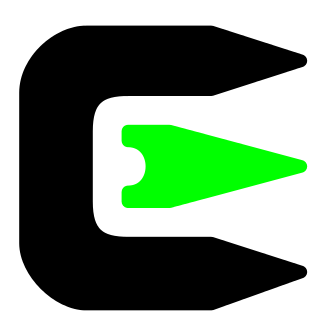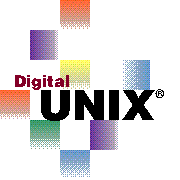
Cygwin is a Unix-like environment and command-line interface for Microsoft Windows. Cygwin's purpose is expressed in its motto: "Get that Linux feeling – on Windows".

GNU is an extensive collection of free software, which can be used as an operating system or can be used in parts with other operating systems. The use of the completed GNU tools led to the family of operating systems popularly known as Linux. Most of GNU is licensed under the GNU Project's own General Public License (GPL).

The GNU Compiler Collection (GCC) is an optimizing compiler produced by the GNU Project supporting various programming languages, hardware architectures and operating systems. The Free Software Foundation (FSF) distributes GCC as free software under the GNU General Public License. GCC is a key component of the GNU toolchain and the standard compiler for most projects related to GNU and the Linux kernel. With roughly 15 million lines of code in 2019, GCC is one of the biggest free programs in existence. It has played an important role in the growth of free software, as both a tool and an example.

The GNU Debugger (GDB) is a portable debugger that runs on many Unix-like systems and works for many programming languages, including Ada, Assembly, C, C++, D, Fortran, Go, Objective-C, OpenCL C, Modula-2, Pascal, Rust, and partially others.

GNU Hurd is a collection of microkernel servers written as part of GNU, for the GNU Mach microkernel. It has been under development since 1990 by the GNU Project of the Free Software Foundation, designed as a replacement for the Unix kernel, and released as free software under the GNU General Public License. When the Linux kernel proved to be a viable solution, development of GNU Hurd slowed, at times alternating between stasis and renewed activity and interest.
Yacc is a computer program for the Unix operating system developed by Stephen C. Johnson. It is a Look Ahead Left-to-Right Rightmost Derivation (LALR) parser generator, generating a LALR parser based on a formal grammar, written in a notation similar to Backus–Naur Form (BNF). Yacc is supplied as a standard utility on BSD and AT&T Unix. GNU-based Linux distributions include Bison, a forward-compatible Yacc replacement.

Tru64 UNIX is a discontinued 64-bit UNIX operating system for the Alpha instruction set architecture (ISA), currently owned by Hewlett-Packard (HP). Previously, Tru64 UNIX was a product of Compaq, and before that, Digital Equipment Corporation (DEC), where it was known as Digital UNIX.

gnuplot is a command-line and GUI program that can generate two- and three-dimensional plots of functions, data, and data fits. The program runs on all major computers and operating systems . Originally released in 1986, its listed authors are Thomas Williams, Colin Kelley, Russell Lang, Dave Kotz, John Campbell, Gershon Elber, Alexander Woo "and many others." Despite its name, this software is not part of the GNU Project.

The GNU Autotools, also known as the GNU Build System, is a suite of programming tools designed to assist in making source code packages portable to many Unix-like systems.
In software development, Make is a build automation tool that builds executable programs and libraries from source code by reading files called makefiles which specify how to derive the target program. Though integrated development environments and language-specific compiler features can also be used to manage a build process, Make remains widely used, especially in Unix and Unix-like operating systems.

The GNU Project is a free software, mass collaboration project announced by Richard Stallman on September 27, 1983. Its goal is to give computer users freedom and control in their use of their computers and computing devices by collaboratively developing and publishing software that gives everyone the rights to freely run the software, copy and distribute it, study it, and modify it. GNU software grants these rights in its license.
bc, for basic calculator, is "an arbitrary-precision calculator language" with syntax similar to the C programming language. bc is typically used as either a mathematical scripting language or as an interactive mathematical shell.

cksum is a command in Unix and Unix-like operating systems that generates a checksum value for a file or stream of data. The cksum command reads each file given in its arguments, or standard input if no arguments are provided, and outputs the file's 32-bit cyclic redundancy check (CRC) checksum and byte count. The CRC output by cksum is different from the CRC-32 used in zip, PNG and zlib.

Linux is a family of open-source Unix-like operating systems based on the Linux kernel, an operating system kernel first released on September 17, 1991, by Linus Torvalds. Linux is typically packaged as a Linux distribution (distro), which includes the kernel and supporting system software and libraries, many of which are provided by the GNU Project. Many Linux distributions use the word "Linux" in their name, but the Free Software Foundation uses the name "GNU/Linux" to emphasize the use and importance of GNU software in many distributions, causing some controversy.
The tsort program is a command line utility on Unix and Unix-like platforms, that performs a topological sort on its input. As of 2017, it is part of the POSIX.1 standard.
GNU plotutils is a set of free software command-line tools and software libraries for generating 2D plot graphics based on data sets. It is used in projects such as PSPP and UMLgraph, and in many areas of academic research, and is included in many Linux distributions such as Debian. Windows and Mac OS X versions are also available. The library provides bindings for the C and C++ languages. Its stand-alone command-line tools can generate graphs and perform numerical calculation of spline curves and systems of ordinary differential equations. Plotutils is a GNU package and is distributed under a free software licence, the GPL.

The Berkeley Software Distribution or Berkeley Standard Distribution (BSD) is a discontinued operating system based on Research Unix, developed and distributed by the Computer Systems Research Group (CSRG) at the University of California, Berkeley. The term "BSD" commonly refers to its open-source descendants, including FreeBSD, OpenBSD, NetBSD, and DragonFly BSD.

A Unix-like operating system is one that behaves in a manner similar to a Unix system, although not necessarily conforming to or being certified to any version of the Single UNIX Specification. A Unix-like application is one that behaves like the corresponding Unix command or shell. Although there are general philosophies for Unix design, there is no technical standard defining the term, and opinions can differ about the degree to which a particular operating system or application is Unix-like.

Unix is a family of multitasking, multi-user computer operating systems that derive from the original AT&T Unix, whose development started in 1969 at the Bell Labs research center by Ken Thompson, Dennis Ritchie, and others.













